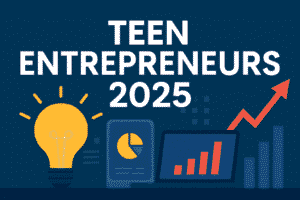Imran Khan Biography 2025: From Cricket Legend to Political Icon

Imran Khan Biography 2025 reflects the journey of one of South Asia’s most transformative personalities. From being Pakistan’s most celebrated cricket captain to serving as the country’s Prime Minister and facing dramatic political upheavals, Khan’s life is a story of ambition, resilience, and controversy. His influence transcends sports and politics, making him a figure of immense global interest. In this comprehensive biography, we explore every facet of his life, offering valuable insights to readers seeking to understand one of Pakistan’s most iconic figures.
Early Life and Family Background
Full Name: Imran Ahmed Khan Niazi
Date of Birth: October 5, 1952
Birthplace: Lahore, Pakistan
Father: Ikramullah Khan Niazi (civil engineer)
Mother: Shaukat Khanum (housewife, philanthropist inspiration)
Imran Khan was born into a well-educated and affluent Pashtun family. His upbringing in Lahore was characterized by discipline, academic focus, and exposure to both traditional Pakistani and Western cultural values. The Niazi tribe, to which he belongs, is part of the larger ethnic Pashtun community, known for its strong traditions of honor and loyalty.
Education and Formative Years
Imran Khan’s early education took place at Aitchison College, Lahore, one of Pakistan’s most prestigious schools. Known for his academic and athletic prowess, he stood out as a promising young cricketer. Later, he attended the Royal Grammar School in Worcester, UK, and eventually Keble College, Oxford, where he studied Philosophy, Politics, and Economics (PPE).
His education in the UK provided a broader worldview, which later influenced his approach to governance and reform in Pakistan. He also gained significant cricketing experience during this period, playing for Oxford University and local county teams.
Rise in Cricket: From Debut to World Cup Glory
Debut: 1971 (Test Cricket for Pakistan)
Captaincy: Appointed in 1982
Crowning Achievement: Winning the 1992 Cricket World Cup
Imran Khan’s cricket career is often cited as one of the finest in the sport’s history. He was a fast bowler, all-rounder, and charismatic leader. His most iconic moment came in 1992 when he led Pakistan to its first and only World Cup victory. The win wasn’t just a sporting triumph but a unifying moment for the nation.
To this day, he is revered by cricket fans globally. For a broader view on the cultural impact of sports heroes, visit this article on Cristiano Ronaldo, another iconic figure with mass appeal.
Retirement and Philanthropy
Imran Khan retired from international cricket shortly after the 1992 World Cup victory. He immediately turned his attention to philanthropy, beginning with the establishment of the Shaukat Khanum Memorial Cancer Hospital in 1994. Named after his mother, the hospital aimed to provide free cancer treatment to underprivileged patients.
His charitable work extended into education, with the founding of Namal University in Mianwali. These endeavors bolstered his public image as a man dedicated to societal change.
Entry into Politics: Formation of PTI
Political Party: Pakistan Tehreek-e-Insaf (PTI)
Founded: April 25, 1996
Imran Khan entered politics with the ambition to combat corruption, ensure justice, and implement Islamic welfare principles. Initially, his party struggled to gain traction. PTI failed to win any significant seats in the 1997 and 2002 elections, but Khan continued advocating for electoral reforms and democratic integrity.
The turning point came in the 2013 general elections, where PTI emerged as a significant political force. By 2018, it won a sweeping majority and formed the federal government, making Khan the 22nd Prime Minister of Pakistan.
For comparison, read Bill Gates’ biography to understand how another leader transitioned from private success to public service.

Premiership (2018–2022): Key Reforms and Challenges
Tenure: August 2018 – April 2022
As Prime Minister, Imran Khan initiated several reforms:
- Ehsaas Program: Aimed at poverty alleviation
- Health Card Scheme: Provided health insurance to millions
- Environmental Policies: Launched the Billion Tree Tsunami campaign
- Foreign Policy: Rebalanced ties with China, Saudi Arabia, and the U.S.
Despite these efforts, Khan’s government was also marred by controversies:
- Accusations of media censorship
- High inflation and economic mismanagement
- Strained civil-military relations
His leadership was polarizing—adored by supporters and criticized by opponents.
Ouster Through No-Confidence Vote
In April 2022, Imran Khan was ousted from office through a no-confidence motion in the National Assembly. The opposition coalition accused him of poor governance and mismanaging foreign relations.
Khan’s dismissal marked a dramatic turn in Pakistan’s political history. He claimed it was orchestrated through foreign interference and internal betrayal. His supporters launched mass protests, demanding early elections.
Legal Battles and Political Persecution
Since 2022, Imran Khan has faced a series of legal troubles. He was arrested multiple times in 2023 and 2024 on charges ranging from corruption to sedition. Human rights organizations criticized these actions as politically motivated.
To understand broader political implications in sports and power, refer to this comprehensive article.
Despite legal restrictions and frequent detentions, Khan continued to exert influence through social media and public rallies.
Popularity and Support Base
Khan’s core supporters are the youth and middle-class urban population. His narrative of resistance against the “corrupt elite” continues to resonate.
PTI maintained its popularity through digital campaigns, bypassing traditional media blockades. This model is similar to modern influencers like IShowSpeed, who thrive on grassroots digital support.
Personal Life and Public Image
Imran Khan has been married three times:
- Jemima Goldsmith (1995–2004) – British heiress and philanthropist
- Reham Khan (2015 – brief marriage)
- Bushra Bibi (2018–Present) – Spiritual advisor and wife
He has two sons with Jemima, who live in the UK. His personal life has frequently been a subject of media fascination and political debate.
Imran Khan’s Views on Religion and Governance
Imran Khan has emphasized Islamic values as a foundation for good governance. He envisions Pakistan as a “Riyasat-e-Madina”—a welfare state modeled after Islamic principles.
However, critics argue that his policies often lacked clarity and consistency. His approach was sometimes seen as a mix of populism and ideological experimentation.
Legacy and Influence (2025)
As of 2025, Imran Khan remains a dominant figure in Pakistan’s political landscape. Despite facing legal challenges, bans, and suppression, he is still viewed as the most popular politician in the country.
His journey mirrors that of leaders who transitioned from unrelated fields to shape national destinies. For context, see Elon Musk’s biography, another example of cross-sector influence.
Whether or not he returns to power, Imran Khan’s legacy is etched into Pakistan’s modern history. He’s remembered as a cricketing hero, a philanthropist, a reformer, and a polarizing politician.
Conclusion: A Multifaceted Icon
Imran Khan’s story is one of transformation—from sports to statesmanship, from heroism to hardship. His life encapsulates the highs and lows of public service and personal ambition. He remains one of the few individuals to successfully bridge the gap between global sports and national politics.
His legacy, though controversial, will continue to inspire future generations of leaders, activists, and reformers.





